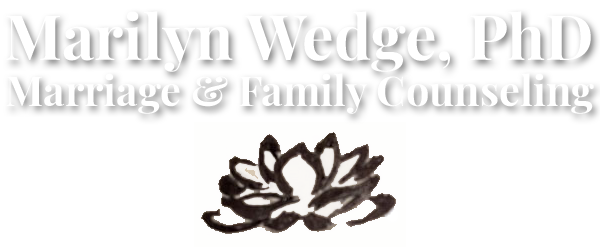Endorsements
Praise for A Disease called Childhood
“A Disease Called Childhood is a very readable analysis of the hoax that American psychiatry and Big Pharma have perpetrated for the past 40 years. The hoax redefines children’s normal behaviors as some form of “brain disease.” Big Pharma, having essentially purchased the profession of psychiatry and its DSM, waged marketing campaigns against vulnerable children, by encouraging physicians, pediatricians, teachers, therapists and concerned parents to buy drugs harmful to children. Marilyn Wedge has written a proper antidote to this unnecessary medicalization, by encouraging us to re-examine the quality of the family, school, and social environments that we provide for our children.”
Stuart A. Kirk, Distinguished Professor Emeritus, Luskin School of Public Affairs, UCLA, author of The Selling of DSM, Making Us Crazy, and Mad Science.
“This reflective, carefully researched and well-written book exposes the cultural wounding of our children by Big Pharma and ill-advised adults. Wedge’s book is a much needed call to action for advocates of children everywhere.”
Mary Pipher, Bestselling author of Reviving Ophelia and The Green Boat
“One of the most important and persuasive books I’ve read in years. If you are a parent, teacher, or doctor of a child diagnosed with ADHD, you owe it to the child to read this book.”
Irving Kirsch, author of The Emporer’s New Drugs: Exploding the Antidepressant Myth
“In this compelling book, Marilyn Wedge provides readers with an in-depth understanding of the rise of ADHD, a skillful deconstruction of the science used to promote the selling of stimulants for the disorder, and—most important of all—a guide for thinking of alternative approaches to helping our children. This is an antidote to the common wisdom about ADHD that our society needs to know.”
Robert Whitaker, author of Anatomy of an Epidemic: Magic Bullets, Psychiatric Drugs, and the Astonishing Rise of Mental Illness in America and Mad in America
“A Disease Called Childhood is strongly recommended for parents who wish to understand the ADHD diagnosis and learn specific techniques that may be helpful for their children.”
Stuart Kaplan, M. D., Clinical Professor of Psychiatry at Penn State College of Medicine and author of Your Child Does not Have Bipolar Disorder
Your book, A Disease called Childhood, revolutionized our belief about our son’s ADHD.”
Mother of two boys
Praise for Pills are not for Pre-Schoolers (paperback title of Suffer the Children)
“When I was growing up, children were not medicated for behavior problems and, in the 30 years I worked as a therapist, I never referred a child for medications. Now, sadly, anxious over-stimulated children, whose families are struggling with issues within and without, are often diagnosed and treated with powerful and often dangerous medications. This magnificent book examines a cultural catastrophe. Dr. Wedge’s book will help restore sanity to our ways of dealing with children with problems, which means all children. She is a family therapist who knows both the science and the dynamics of families in trouble. With benevolence and the true fighting spirit of a child advocate, she offers us new ways to help our children have childhoods. I highly recommend this book to doctors, mental health professionals, educators and that most beleaguered of groups–parents.”
Mary Pipher, Ph.D. Author of Reviving Ophelia and Seeking Peace
“…This is a brilliant book. It is interesting and compelling to read, and it really does give a reasonable alternative to drugs. The question I found myself asking repeatedly while reading it is why don’t we use effective family therapy before prescribing drugs all the time? It clearly works, and Wedge is an insightful, talented expert at it. If you or someone you know has a child that is going through issues, before you fill that prescription for a drug, READ THIS BOOK. Trust me, you will be so glad you did.”
Shannon Devereaux Sanford, Radio host WTBQ New York
“Impressive…Suffer the Children is very readable, and I think it would be useful for both the general reader and for students. If I were teaching a course on family therapy, or even therapy generally, I would definitely consider [it] as an assigned text. You cover a lot of ground in a very straightforward, non-technical, unpretentious way.”
David Van Nuys, Ph.D. professor of psychology emeritus at Sonoma State University, and host of Shrink Rap Radio.
“Without blaming parents, Wedge describes how she helps the family system as a whole, treating it as a living organism with an amazing capacity for self-healing…Like a clever detective, the author allows the child to lead her to the heart of a family’s problems. Interweaving a range of fascinating case studies,Wedge proves that the road to a child’s healing can often be sucessfully navigated without the use of labels and potentially harmful meds.”
Publisher’s Weekly
“…Many school authorities, doctors and other professionals mean well when they prescribe medication and diagnose what appeal to be symptoms of ailments which can be treated by pills. What Dr. Wedge advocates is coordinating family treatment by solving the underlying problems within the family…This book is highly recommended.”
Clark Isaacs–Kingman Daily Miner
“It’s an easy laugh to be had at the expense of pharmaceutical corporations whenever a television commercial for a medication offers a list of “possible side effects” that sounds like a summation of an apocalypse. Despite this, the prevalence of treating everything with medication has slowly spread youthwards, and the number of children being diagnosed with psychiatric disorders has risen sharply. Family therapist Wedge believes that this is unnecessary, a result of fierce marketing by pharmaceuticals, and the paranoia of parents over not having their children Harvard-ready at age five. Wedge takes the family dynamic into account as a primary influence on child behavior, but veers away from presenting a polemic against parents…Her encouragement to look anew at the “problems” our children have…and to step back from immediately falling into diagnosis is valuable and expert advice.”
Matthew Tiffany–Booklist


